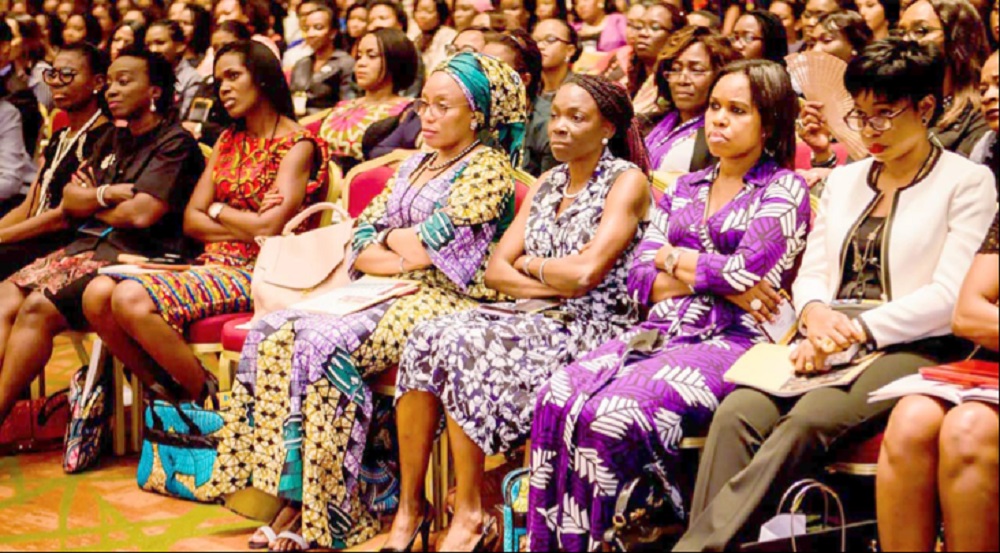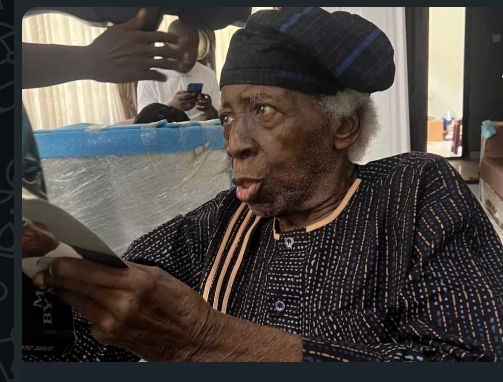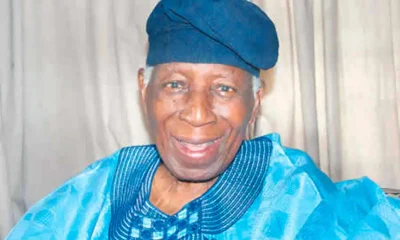News
(INVESTIGATION) Who is to be held accountable for shrinking number of women in governance?

…Five Gender Bills and lack of political will by Executive/Legislature
By Gloria Ikibah
Low representation of women in politics and the numerous factors militating against their involvement have always generated concern for many experts in Nigeria. This low turn out of women is experienced at the local government, state and national level.
Naijablitznews.com reports that since the return to democracy in 1999, the political space has seen the number of women in politics, elective and appointive positions drastically drop by the day, and not quite encouraging.
The National Assembly has been dominated by males, in 1999, there were only 3 women out of the 109 members representing 2.8 per cent of the members of the Senate.
In 2007, the number increased to 8 (7.3 per cent). But in 2011, there was a decrease to 7 in 2011, which is 6.4 per cent and in 2015, 8 (7.3 per cent).
While the number of women in the House of representative was 12 out of 360 members in 1999, which was about 3.3 per cent.
In 2003 the number increased to 21 (5.8 per cent). We had 26 (7.2 per cent) in 2011, and in 2015, there was a decline to 19 (5.3 percent).
While, between 1999 and 2003, out of 130 federal boards of public corporations, only 7 (5.6 per cent) were women.
During the period, out of 47 cabinet ministers appointed, only 7 were women which represent 14.89 per cent. In 2011, more women were given political appointment, 12 women were appointed as Ministers out of 42, which represent 30 per cent and 4 women out of 20 as Special Advisers.
In this present administration, only 6 women were appointed as Ministers out of 30 ministerial appointees.
Meanwhile, in 2023, statistics revealed that the number of women elected to the National Assembly is the lowest since 2003, when 24 women were elected.
In the 2023 National Assembly, elections held on 25 February, 11 women ran for Senate seats, while 35 ran for seats in the House of Representatives.
At the end of the polls, the 10th National Assembly recorded 14 female members in the lower chamber and 3 in the upper chamber.
The circumstances resulted in the emergence of five bills in the 9th Assembly to press home the demands of the female gender, and make them have relevance in the political space.
But the five gender bills were not passed by the 9th Assembly, despite the promise by the leadership, as they never saw the light of the day, as the 9th Assembly did not do justice for their passage, and no assent given by the president.
The bills are: “Bill to provide special seats for women at national assembly”, “Affirmative action for women in political party administration”; another bill sought to ‘grant citizenship to foreign-born husbands of a Nigerian woman”. Already, a Nigerian man’s foreign-born wife is automatically a Nigerian citizen and a bill that seeks to “allocate 35 per cent of political positions based on appointment to women and creation of additional 111 seats in National Assembly as well as at the state constituent assemblies”.
Lastly, “Inclusion of at least ten percent affirmative action in favour of women in Ministerial appointments”.
While speaking with Ene Edeh, the Founder of Policy Advocacy and publisher of The Woman Today, she said the five gender bills still remain the same, and nothing really has changed, but it is going to be represented.
According to her, the executive, legislature, political gladiators, political stakeholders, and particularly the political parties are responsible for the non passage of the five gender bills.
She stated: “The major reason responsible is fear, and anxiety about the space been populated by marginalised groups and particularly women. They feel that it will shrink their relevance, it will diminish their value, and it will make them less of men. “You know what men do. They have access to plenty of money, they have power, they have access to state resources, and they have unlimited opportunities, that they use as a bait for us.
“So, the oppressing tendency that governance in Nigeria gives to politicians is unlike other countries that the opportunities are used for service. So these structures and opportunities are usually used for oppression and self aggradisement.
“Another reason, Nobody is really holding anybody strictly and strongly accountable in a consistent manner. So it is a major problem for us. They have their way always, and that is why people get up to say things in the Assembly, and they go free. In other countries, they hold them to account, and the system is self accounting.
“There’s seeming a lack of cooperation among women, we believe that there is competition”.
The Executive Director of Inemo Foundation, Dr. Opeyemi Adeosun, blamed the diminishing representation of women in leadership positions, on the political class and women.
According to Adeosun, if women represent about 50 per cent of Nigeria’s population, “why can’t they mobilise themselves? But naturally, the majority of them are under men. If you are a daughter, a wife, or a sister, you are still under a man.
“So, we blame the political class for it, if you know the power of women, if you know the strength that women hold, a lot of them have made us proud”, he noted.
Adeosun said, women must be factual in their dealings when it comes to the passage of these bills.
“They must come with evidence based data, by carrying out research on other countries, advocates should push and lobby for the passage of this bill , and need to be strategic about the engagement.
“People need to be aware because a lot of people are not aware of this bill. A lot of people are not even aware that women are fighting for women. Women are too busy with other things. Leadership actually means responsibility and accountability, so women should sensentize women and they should engage more men in the community, CSOs and prominent people; including the lawmakers themselves, just like it has started to garner support.
He further added that there should be a sustainability plan to empower women.
“We do not see any strategy to keep issues of women at the front burner. We just do and go, we retreat and come again. The energy is not there to deliver on the misbehaviour we are seeing, the political rascality is too much and is not checked.
“We also have the problem of not been able to empower women sufficiently to fight, we should raise strategic fighters. We have never had it so bad, for me we can still get it right even before 2027 with different elections happening”, Adeosun asserted.
“The Late Dora Akunyili, Ngozi Okonjo-Iweala, Madam Servicom and a number of them. Women have good hearts, but men believe that they can be emotionally imbalanced sometimes, but in leadership, they also seek the guidance of men, and once you give them authority, they can use it positively. We have also seen a number of them use it negatively like men in political leadership positions.
“The political class must pay attention to this, and say, let us test the power of women. What is the extent of progress made over the years? Can we try women? Can we try more youths? Can we try people who have not been given the opportunities?”
An investigation by Naijablitznews.com into women’s representation in political and appointive positions in the federal capital territory Abuja, revealed that the number of women in council in the six area councils have diminished drastically, and even no representation in the last council election.
In the federal capital territory Abuja, there are six area councils and there is no female representative as councilor or chairman of an area council. A total of 55 candidates contested to be the chairpersons of the six area councils. Only three of the candidates (9 per cent) are women.
Also, all the 55 candidates, by law, had to have running mates, who if elected would be the vice-chairpersons of the area councils. Of the 55 running mates, only eight (15 per cent) are women.
The Chairman of the Abuja Municipal Area Council (AMAC), Hon. Matthew Yare, disclosed that there is no female councillor in the whole of the Federal CapitalTerritoryAbuja.
He decried: “Even at the national level, you see the numbers shrinking. The issue is that we keep pushing them, we keep fighting them, and we keep giving them a fight that they can not bear. Now you should know that the female is somebody’s wife, she is some one’s mother.
“The children would tell her to stay back because they need her more than the political fight, and the husband tells her same, because we have made it look like it is a fight for the survival.
“I must be very frank with you that it was disappointing, in FCT we have 62 councillors in two major parties, not just that we do not have female representatives but that even in the general election a female did not emerge in the Primaries, they were denied tickets at the primary level.
“So when they are denied ticket at the primary level, you know that for sure at the main election they can not just come up in the major political parties that we have. It is disappointing, it is not good.
“In the council, before this current one, there was no female. It’s been quite a long time since we had a female representative in our political positions in FCT. And it is not a good practice. Like I said, we must have laws that prescribe for female representation, and that is the only way we can get all of it.
“There is no female councillor in the whole of FCT. In the last council of the 62, we had only one female from Ushafa ward in the Bwari Area Council”.
Hon. Yare believes that only if deliberate laws are put in place, and the 1999 constitution of the Federal Republic of Nigeria amended to accommodate women in such positions, only then can we see gender representation and balance.
“Now, for us to get it right as a nation and as a people, there need to be laws that prescribe specifically. For instance, in the senatorial seat, that for every state there must be one female Senator, now it becomes a law.
Or you say where two senators come, the next one should be a female. There must be those deliberate laws. When they are prescribed in our constitution and laws, it gives room for gender representation, and it gives a balance.
“Where it is open, I tell you that the challenge for the female gender is political participation, Nigeria is tough and tight, it is not easy and it is because of our loose laws where there are political thugs and so on. How many women can pay for political thugs to be able to win an election?
“There is a lack of political will, and we can not say that females are not supporting the female this time around. No, that era is gone. We see the females getting their governorship candidate to be kept in Adamawa state, but winning the election at the end of the day is a problem”, he asserted.
The AMAC Speaker further noted that the electoral law, national code of conduct for elections, and the rest of it must be deliberate.
“We must have deliberate laws that give women representations the opportunity. What then can women do to ensure that the five gender bills is given accelerated hearing before the 10th National Assembly and also presidential assent?
Comrade Edeh, said a new approach must be adopted to see passage of the five gender bills and ensure it is signed into law.
“Our overall strategy for delivery on these 5 development bills (gender bills) is largely obsolete, ineffective and bad behaviour eggo massaging.
“Women closing internal, women for women gaps, building water -tight trust, finding creative, innovative ways of funding their convictions, empower themselves and other women and girls
‘ We need to get trusted male allies , expand and improve the strategy. Women from armed forces who have retired, security agencies, civil servants, former office holders, ordinary women, and all sectors need to collaborate extensively”, she said.
Experts have recommended holistic amendment of our laws from top to down, so as to give the female gender their representation that positions specified in the laws.
The school curriculum should capture gender development.
Women need to support each other during elections ,not minding their husband political affiliations.
This investigation is for the GENDER ACCOUNTABILITY AND INCLUSIVITY IN NIGERIA project for Gender Strategy Advancement International (GSAI) supported by the OPEN SOCIETY INITIATIVE FOR WEST AFRICA.
FIRST PUBLISHED ON DECEMBER 4, 2023.
News
“How we imortalised Olunloyo before his death-Makinde

By Kayode Sanni-Arewa
Governor of Oyo State, Seyi Makinde has said he is happy that former governor of the State, Omololu Olunloyo was imortalised before his demise.
Makinde, in a condolence message by his media aide Sulaimon Olanrewaju on Sunday, said the country had lost a patriotic leader, an icon and one of its most cerebral former administrators with the politician’s demise.
The governor said it is sad that the late mathematical guru and administrator passed away before his 90th birthday.
“This death hits differently because I was looking forward to Baba’s 90th birthday, which would have come up on April 14. However, we have to submit to the will of God, who gives and takes lives as He wills.
“My joy is that our government immortalised and honoured Pa Olunloyo in his lifetime and he was present to witness it as we named the Ibadan Airport Road and the Leisure Park on the axis after him in recognition of his service to the state.
“May the Lord grant repose to his soul and give his family the fortitude to bear his demise,” Mr Makinde said.
The death of Mr Olunloyo was confirmed on Sunday morning through a statement by his family.
The deceased died just a few days before his 90th birthday, according to the statement.
News
Iran turns down Trump’s call for direct nuclear talks

Iran’s top diplomat has rejected direct negotiations with the United States as pointless, his office said Sunday, after US President Donald Trump said he preferred face-to-face talks over its nuclear programme.
Trump sent a letter to Iran’s supreme leader Ayatollah Ali Khamenei last month calling for negotiations but warning of military action if diplomacy failed.
On Thursday, the US president said he favoured “direct talks”, arguing they were “faster” and offered a better understanding than going through intermediaries.
But Iranian Foreign Minister Abbas Araghchi said direct talks made no sense with a country “that constantly threatens to resort to force in violation of the UN Charter and that expresses contradictory positions from its various officials”.
“We remain committed to diplomacy and are ready to try the path of indirect negotiations,” he was quoted as saying in a statement issued by his ministry.
Iran keeps itself prepared for all possible or probable events, and just as it is serious in diplomacy and negotiations, it will also be decisive and serious in defending its national interests and sovereignty.”
On Saturday, Iranian President Masoud Pezeshkian said his country was willing to engage in dialogue with the United States on an “equal footing”.
He also questioned Washington’s sincerity in calling for negotiations, saying “if you want negotiations, then what is the point of threatening?”
Iran and the United States have had no diplomatic relations since shortly after the 1979 Islamic Revolution with some regional countries like Oman playing a mediating role between the two sides.
Letter diplomacy
Trump’s letter was delivered to Iran via the United Arab Emirates, and Tehran responded at the end of March via the Sultanate of Oman.
On Sunday, the chief of staff of the Iranian armed forces, General Mohammad Bagheri, said Iran’s response stressed that “we seek peace in the region”.
“We are not the ones who start wars, but we will respond to any threat with all our might,” he said of the content of Iran’s response.
Western countries, led by the United States, have for decades accused Tehran of seeking to acquire nuclear weapons.
Iran rejects the allegation and maintains that its nuclear activities exist solely for civilian purposes.
In 2015, Iran reached a landmark deal with the permanent members of the UN Security Council, namely the United States, France, China, Russia, and the United Kingdom, as well as Germany, to limit its nuclear activities.
The 2015 agreement — known as the Joint Comprehensive Plan of Action — gave Iran sanctions relief in exchange for curbs on its nuclear programme to guarantee that Tehran could not develop a nuclear weapon.
In 2018, during Trump’s first term in office, the United States withdrew from the agreement and reinstated biting sanctions on Iran.
A year later, Iran began rolling back on its commitments under the agreement and accelerated its nuclear programme.
On Monday, Ali Larijani, a close adviser to Khamenei, warned that while Iran was not seeking nuclear weapons, it would “have no choice but to do so” in the event of an attack against it.
News
Nigerian Army ‘Destr0ys Over 70 Bandits Dens In Taraba, Wastes Three Terrorists’

During the operation, three terrorists were reportedly eliminated, and security forces recovered firearms and logistical supplies.
The Nigerian Army says it has destroyed over 70 camps used by bandits in Taraba State, as part of a continued effort to combat terrorism in the region.
During the operation, three terrorists were reportedly eliminated, and security forces recovered firearms and logistical supplies.
SaharaReporters learnt that the military engaged the terrorists at a hideout in Achelle, situated within the Karim Lamido Local Government Area, as part of their ongoing efforts to dismantle the remaining elements of terrorist groups in the state.
Captain Oni Olubodunde, spokesperson for the 6 Brigade of the Nigerian Army in Jalingo, confirmed the operation, stating that its primary objective was to identify and neutralise dangerous criminals active in the area.
Olubodunde further reported that, in addition to eliminating the three terrorists, security personnel seized an AK-47 rifle, ammunition, and two motorcycles during the operation, which took place on April 5, 2025.
“In continuation of Operation Lafiya Jama’a, a military offensive to remove criminal elements from Taraba State, the brave troops of the 6 Brigade Nigerian Army and Sector 3 Operation Whirl Stroke (OPWS) successfully neutralised three bandits, destroyed several camps, and seized weapons and ammunition during a daring clearance operation conducted in the Karim Lamido Local Government Area on April 5, 2025,” said Olubodunde.
The operation targeted suspected bandit hideouts, beginning in Achelle, where troops carried out a thorough sweep before advancing to Chibi.
As forces reportedly approached Chibi, the bandits attempted to escape but were intercepted. In the ensuing clash, three bandits were eliminated, and multiple makeshift camps were destroyed. Security personnel also seized two motorcycles, an AK-47 magazine, and 13 rounds of 7.62mm special ammunition.
Furthermore, troops conducted extensive searches in the Dutsen Zaki and Achalle areas, where over 70 criminal camps have been dismantled in recent weeks.
According to Olubodunde, no signs of human activity were detected during this latest operation, underscoring the effectiveness of previous security efforts.
Brigadier General Kingsley Chidiebere Uwa, Commander of the 6 Brigade Nigerian Army, praised the troops for their dedication and strategic execution. He reassured the people of Taraba State that terrorists and criminals would find no refuge in the region.
General Uwa also urged residents to remain vigilant while going about their daily activities without fear. He emphasised the importance of maintaining law and order.
He encouraged the public to provide timely and credible information to security agencies, stressing that such cooperation is essential for ensuring the safety of local communities.
-

 Politics9 hours ago
Politics9 hours agoTinubu Gives Fani Kayode, Others New Appointments (See Full List)
-

 News9 hours ago
News9 hours agoDANGER! Ex-Soldier Abubakar Affan Vows to Kill VeryDarkMan ‘Like Deborah Samuel’
-

 News12 hours ago
News12 hours agoWhy NYSC maybe extended by FG- Minister
-

 News22 hours ago
News22 hours agoVOA Halts Operations In Nigeria, Others Over President Trump
-

 News12 hours ago
News12 hours agoIbas moves to rehabilitate damaged Rivers LG secretariats
-

 News9 hours ago
News9 hours agoJust in: Ex-Oyo governor, Olunloyo is dead
-

 Economy12 hours ago
Economy12 hours agoCBN allocates $197.71m into FX market to support naira
-

 News23 hours ago
News23 hours agoPolice rescue 14 kidnapped passengers of Benue Links






